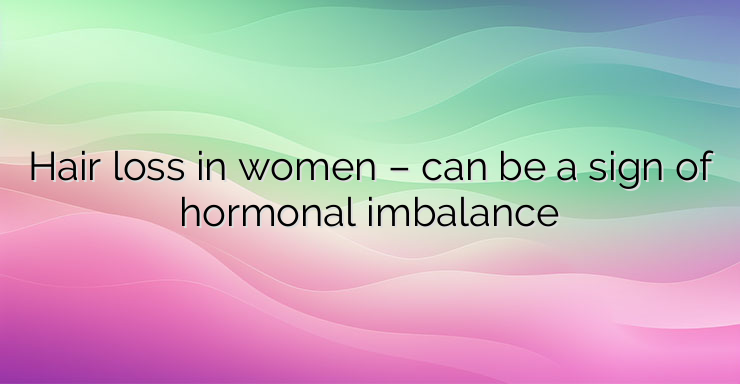Probably, every woman has faced these problems – a lot of hair left on the pillow after waking up from sleep or on the comb after combing and eventually thinning hair. And when it becomes chronic, we start looking for where is the problem? It turns out, in fact, that the reasons for female hair loss are not few. The most common cause of baldness among men and women is heredity. If you have a family member with baldness, your risk increases as well. Usually, sex hormones trigger these factors, and that’s why the problems start as early as puberty. In some cases, hair loss can be a local reaction to a general stressful situation for the body, for example, severe illness, surgery, trauma, significant weight reduction or in case of strong emotional stress – for example, the loss of a relative. Usually, hair loss recovers after the general condition improves. Hormonal changes that occur in the female body during the periods of pregnancy and childbirth, menopause or after stopping the use of contraceptives can cause temporary hair loss. After their normalization, a spontaneous reduction in hair loss begins and the growth of new healthy hairs increases. Hair loss is usually a symptom of another disease or micro- or macronutrient deficiency Polycystic ovary syndrome is a common condition among young women of reproductive age. The reasons for its occurrence and the exact genesis of the disease are not fully specified, but usually it occurs with hyperandrogenemia. The levels of male sex hormones in the blood are increased as a result of impaired steroidogenesis in the ovaries. You know that in addition to producing eggs, they synthesize male and female sex hormones. Not all women with polycystic ovary syndrome have androgenic alopecia (baldness in the scalp). In those of them in which it occurs, the alopecia is rather the result of a genetically determined higher sensitivity of the hair follicle to androgens. NEWS_MORE_BOX Hypothyroidism and hyperthyroidism can also cause hair loss, especially in severe cases. Much less often, subclinical forms of hyper- or hypothyroidism (in the event of normal peripheral hormones – FT4 and FT3 and increased or decreased TSH) lead to hair loss. Thyroid diseases usually cause diffuse hair loss and, less commonly, localized baldness of the scalp (alopecia areata). In most cases, the cause of hyperthyroidism or hypothyroidism is an autoimmune thyroid disease, and as such it can be associated with another autoimmune disease. An example is alopecia areata, in which there is an autoimmune reaction targeting the hair follicles, usually located on the scalp, or lupus erythematosus, a systemic autoimmune disease of the connective tissue. Iron deficiency is another common cause of diffuse hair loss in women, especially those with heavier menstrual bleeding. Zinc is a trace element,involved in several vital processes in the human body. It is perceived as an element necessary for the maintenance of beautiful hair, skin and nails, and therefore its deficiency can also be a cause of hair loss. What to do about hair loss? Treatment of hair loss as a symptom requires clarification of the cause of its occurrence. From the above, we can summarize that in cases of prolonged and severe hair loss, a complete blood count, ESR and/or CRP (erythrocyte sedimentation rate and C-reactive protein – markers of inflammation) and iron levels are appropriate , iron-binding capacity (FBC) and ferritin (indicator informing about iron stores in the body) and TSH (screening hormone for thyroid gland function). Consultation with a doctor is imperative in the presence of deviations in some of these indicators. In all cases, a complete and varied diet, rich in different types of micro-macronutrients, reducing stress in everyday life and treating concomitant diseases would most likely lead to a positive effect on hair loss.


Leave a Reply